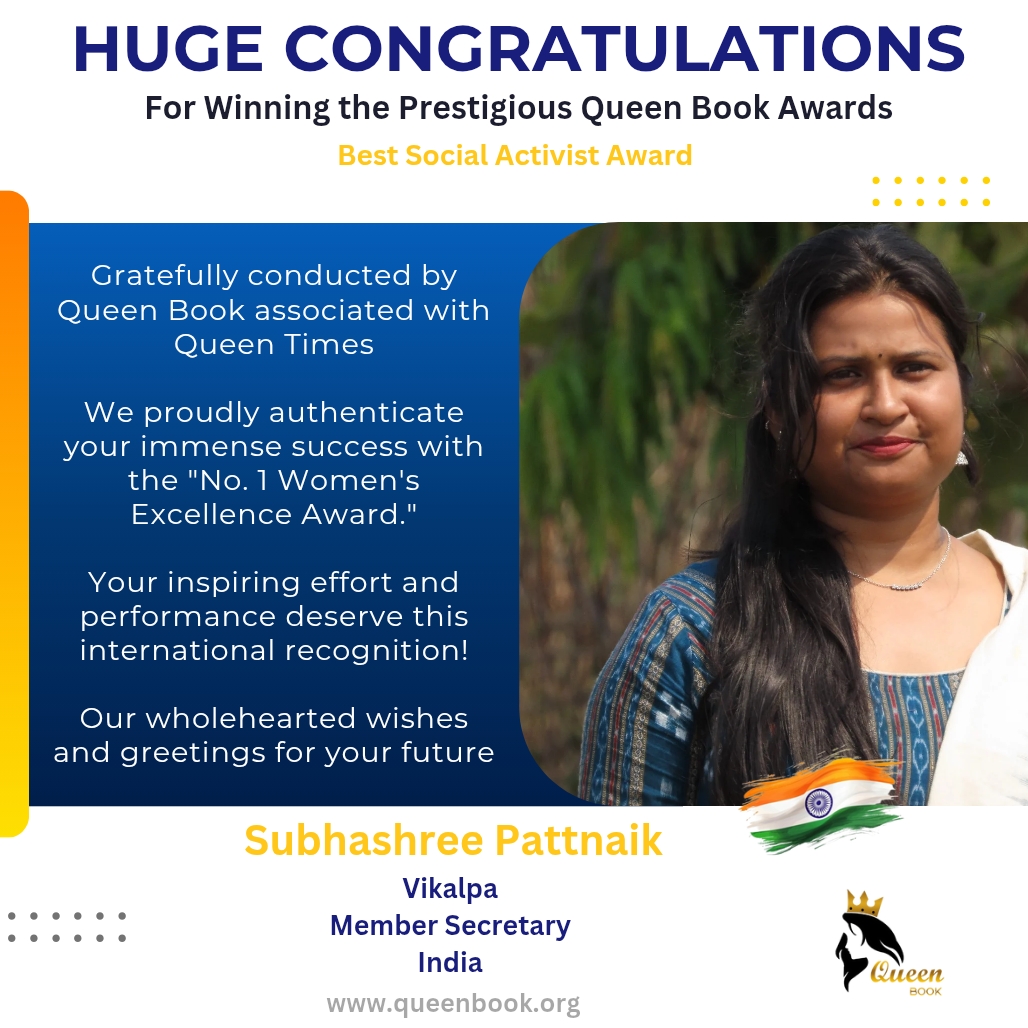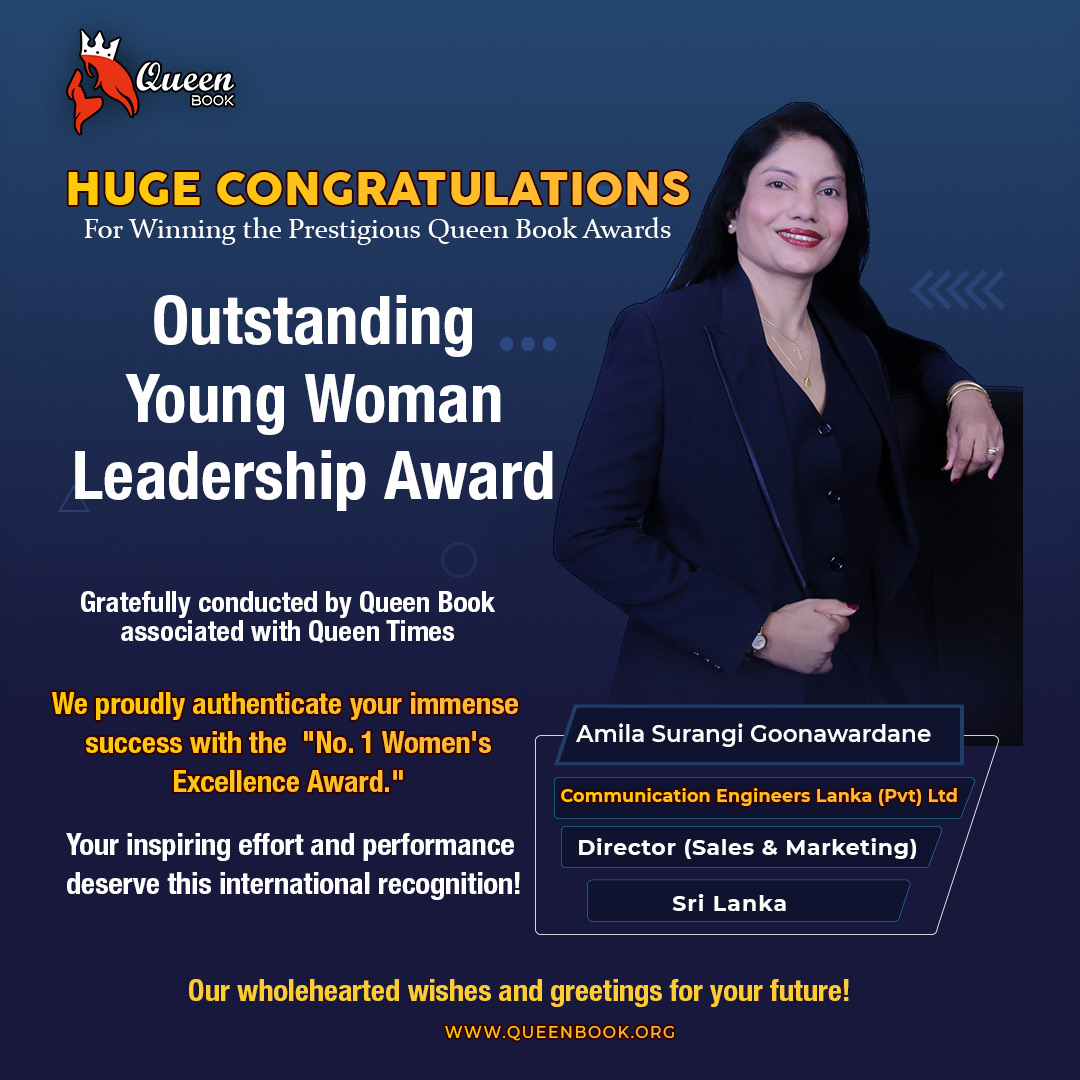Subhashree Pattnaik has won Best Social Activist Award

Subhashree Pattnaik has won Best Social Activist Award
Subhashree
Pattnaik: Breaking Barriers, Transforming Lives
Subhashree
Pattnaik's journey is a testament to resilience, determination, and
transformative leadership. As a young woman from Kantabanji, a small NAC town
in the Bolangir district of Odisha, India, she has defied societal norms and
patriarchal barriers to emerge as a leader in the social sector. Her life's
work extends beyond personal success, focusing on empowering marginalized
communities and inspiring others to overcome their circumstances.
Early
Life and Inspiration
Born
into a family deeply committed to education and social service, Subhashree’s
upbringing was rooted in values of humanity and equal rights for the poor. Her
mother, a government school teacher, and her father, a dedicated social worker,
played pivotal roles in shaping her worldview.
Her
father, armed with a doctorate in the economics of education and student
alienation in Indian universities, had the potential for a stable career in
bureaucracy. However, his research in Nuapada in the early 1980s exposed him to
the harsh realities of starvation, hunger, and drought, leading him to abandon
conventional career paths and establish the NGO, Vikalpa, to provide
alternatives for those in distress.
Her
mother, who was deeply aware of the challenges in rural education, supported
her husband’s mission wholeheartedly. She worked tirelessly to encourage
villagers to send their children to school, ensuring access to education for
the underprivileged. Growing up in such an environment, Subhashree developed a
love for humanity and the courage to follow her convictions rather than
societal expectations. She was nurtured in a household where empathy and social
responsibility were paramount.
The
Path to Leadership
The
untimely demise of her father became a defining moment in Subhashree’s life.
Witnessing his dedication to community welfare, she resolved to carry forward
his legacy at the tender age of 20. Despite skepticism from peers and donors
who dismissed her as “too young” to manage an NGO, she persevered. Many
questioned her ability, stating, “You will marry soon; what will happen to your
NGO then?” These challenges only strengthened her resolve.
With
unwavering support from her mother and siblings, she stepped into the
leadership role of Vikalpa. The very community her father had served for
decades rallied behind her, ensuring she did not stand alone in her mission.
She often reiterates her father’s words: “I have earned so much goodwill
that even if I die, my goodwill will help you flourish. That is the only asset
I can transfer to my children and wife.” This goodwill became the
foundation upon which she built her leadership.
Challenges
as a Woman Leader
Navigating
the deeply entrenched patriarchal norms in rural Odisha was no easy feat.
Convincing communities to accept women’s empowerment initiatives required
immense effort. She faced resistance from skeptics who doubted the ability of
women to lead. Working in Maoist-prone and migration-affected regions posed
significant risks. Traveling alone on a bike through forests underscored her
commitment and courage. Starting with limited staff and funding further
compounded the challenges of execution.
Despite
these hurdles, Subhashree remained undeterred. She turned every rejection and
doubt into motivation, proving that women could lead, inspire, and bring about
change. In her interactions with women’s communities, she emphasizes that while
women often hear discouragement, they possess the power to defy expectations.
She boldly states, “Jo humse ho payega, woh tumse na hoga” (What we can
do, you cannot), inspiring others to rise above doubt and take charge of their
destinies.
Empowering
Women and Transforming Communities
Subhashree’s
leadership is deeply people-centered, fostering trust, collaboration, and
innovation. She believes that “people are the heart of the organization,” and
her approach reflects this philosophy. Through grievance redressal mechanisms,
motivational sessions, and fostering creativity, she has created an inclusive
environment that encourages growth and self-belief.Her impact goes beyond her
immediate team. She has mobilized resources effectively, built alliances with
like-minded organizations, and expanded Vikalpa’s reach. During the COVID-19
pandemic, she launched the innovative “Vegetable on Wheels” initiative,
providing women producers with a platform to sell their produce while raising
awareness about safety measures. Refusing to remain silent during crises, she
inspired women leaders to confront challenges head-on, encouraging them to be
warriors in their communities.
One
of the most inspiring milestones under her leadership was the establishment of Harishankar
Women Producer Company Limited in 2019, with 3,000 women shareholders and
an all-women board of directors. Initially, these rural women were filled with
self-doubt. A board member, Janaki Bhue, questioned, “Ame kenta karma? Ame
desh jasu, tamar baki chalak, padha likha nene kenta company kari chalama”
(How will we do this? We go for migration; we are not educated—how can village
women run a company?). Subhashree’s motivation and guidance empowered them to
believe in themselves. Today, the company has an approximate turnover of 1
crore, and Janaki Bhue has received the Ojaswini Award for her transformation
from a migrant laborer to a thriving woman farmer.
For
her exceptional contributions to social transformation and women's empowerment,
Subhashree was honored with prestigious award by the Women Leaders Forum, recognizing her
unwavering dedication to societal change.
Her initiatives extend beyond women’s
empowerment. She actively works in areas such as: Natural Resource
Management, Health and Nutrition for Women and Children, Free Eye Camps, Adolescent
Health Programs, Reducing Distress Migration, Promotion of Millets in Tribal
Areas, Crop Diversification and Sustainable Farming. Her leadership style is
rooted in inclusivity and sustainability, transforming not just individuals but
entire communities.
By
focusing on building trust through concrete actions—such as listening to
community needs, following up on feedback, and appreciating contributions—she has
cultivated a culture of resilience and unity.
Conclusion
Subhashree
Pattnaik’s journey is a testament to how determination can overcome even the
most formidable challenges. Her work has uplifted marginalized women while
redefining leadership in patriarchal societies. She inspires countless others
to believe that “empowerment begins when we help others discover their inner
strength.” Her legacy is not just one of personal success but of creating a
ripple effect of transformation across communities.
She
believes, “If rural marginalized women are able to change society and craft
their own destinies, I will feel fulfilled.” Through her leadership, she
has ignited a movement of empowerment, ensuring that countless women find the
courage to break barriers and shape their own futures. Subhashree Pattnaik is
not just a leader—she is a revolution in motion.




Share This News